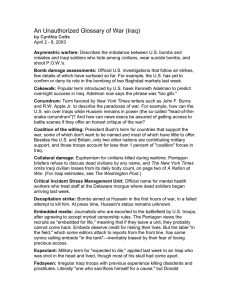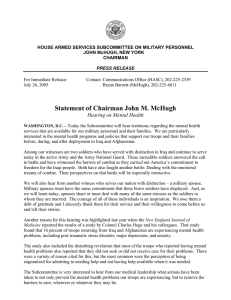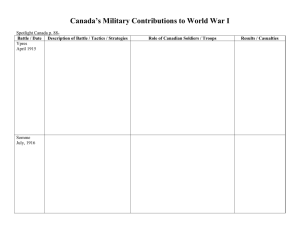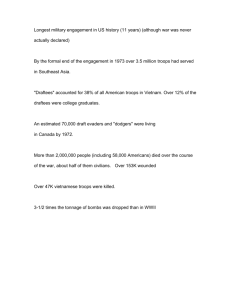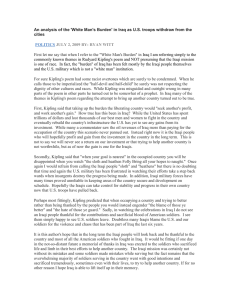CHAIRMAN HUNTER OPENING STATEMENT HOUSE ARMED SERVICES COMMITTEE DUNCAN HUNTER – CHAIRMAN
advertisement
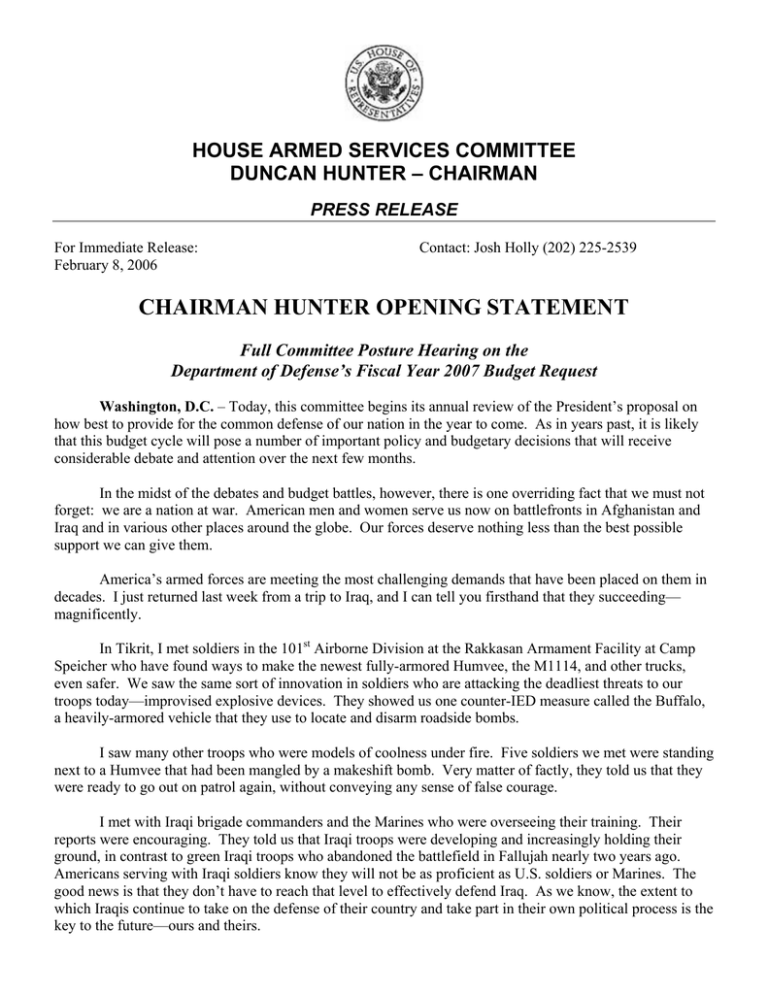
HOUSE ARMED SERVICES COMMITTEE DUNCAN HUNTER – CHAIRMAN PRESS RELEASE For Immediate Release: February 8, 2006 Contact: Josh Holly (202) 225-2539 CHAIRMAN HUNTER OPENING STATEMENT Full Committee Posture Hearing on the Department of Defense’s Fiscal Year 2007 Budget Request Washington, D.C. – Today, this committee begins its annual review of the President’s proposal on how best to provide for the common defense of our nation in the year to come. As in years past, it is likely that this budget cycle will pose a number of important policy and budgetary decisions that will receive considerable debate and attention over the next few months. In the midst of the debates and budget battles, however, there is one overriding fact that we must not forget: we are a nation at war. American men and women serve us now on battlefronts in Afghanistan and Iraq and in various other places around the globe. Our forces deserve nothing less than the best possible support we can give them. America’s armed forces are meeting the most challenging demands that have been placed on them in decades. I just returned last week from a trip to Iraq, and I can tell you firsthand that they succeeding— magnificently. In Tikrit, I met soldiers in the 101st Airborne Division at the Rakkasan Armament Facility at Camp Speicher who have found ways to make the newest fully-armored Humvee, the M1114, and other trucks, even safer. We saw the same sort of innovation in soldiers who are attacking the deadliest threats to our troops today—improvised explosive devices. They showed us one counter-IED measure called the Buffalo, a heavily-armored vehicle that they use to locate and disarm roadside bombs. I saw many other troops who were models of coolness under fire. Five soldiers we met were standing next to a Humvee that had been mangled by a makeshift bomb. Very matter of factly, they told us that they were ready to go out on patrol again, without conveying any sense of false courage. I met with Iraqi brigade commanders and the Marines who were overseeing their training. Their reports were encouraging. They told us that Iraqi troops were developing and increasingly holding their ground, in contrast to green Iraqi troops who abandoned the battlefield in Fallujah nearly two years ago. Americans serving with Iraqi soldiers know they will not be as proficient as U.S. soldiers or Marines. The good news is that they don’t have to reach that level to effectively defend Iraq. As we know, the extent to which Iraqis continue to take on the defense of their country and take part in their own political process is the key to the future—ours and theirs. When you see our troops in the field, you see that their work is painstaking and it is tough, but they are optimistic and operating very effectively. That is because they see the tremendous value their mission. They understand how much they have helped transform this vital nation in the heart of the Middle East. In a relatively short time, they’ve supported Iraqis in producing an Iraqi constitution and holding national elections that drew even more citizens into Iraq’s democratic process than we saw in the January 2005 elections. Iraq’s political system may be fragile and it may still move slowly, but what is important is that it is moving. Because of this significant advance, we have a means to build fundamental change in the Middle East that will make us all safer for generations to come. This enormous potential for good, however, necessitates a real investment from us: we must provide the brave men and women who fight for our security all the material and moral support we can muster. Countering threats to our security—and not artificial budget constraints—should determine our commitment of resources to national defense. We cannot afford to make tradeoffs—for example, between end strength and modernization. We must commit the resources we need to protect this nation and our people from the threats that exist today and will evolve in the future. When you factor in inflation, BRAC and Army modularity, the FY 2007 budget request is only 1.4% above the FY 2006 enacted level. We are still only spending roughly 3.9% of our gross domestic product on defense, less than we spent during the Reagan buildup. But that does not mean we are going to sign a blank check. Just like our troops in the field, we must also promote innovative solutions and take process risks to begin to move our massive bureaucratic systems in directions that allow us to better adapt to the rapidly changing threats facing our forces. In closing, I would thank all of our wonderful troops who serve us so well. ### http://armedservices.house.gov/
